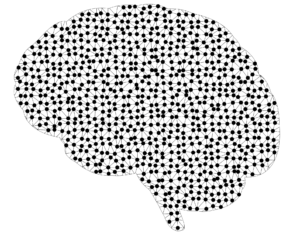In the month of April my students seemed to collectively have a case of the “I Don’t Want To’s”. Time after time they would panic when they saw a new song and go from a confident, capable student to a bewildered and worried kid who seemed to be on the brink of quitting. I heard “I don’t want to” too many times to count!
I know that feeling well: the feeling of panic at the sight of a million notes that seemed to swim in front of me on the page.

What is it about the piano that makes it so difficult? Why do we feel like it’s impossible to learn a new song?
The answer is complex, but I believe part of it could be found in the way our brains are wired.
Dr. Carolyn Leaf is a world-renowned brain scientist who has studied the way we change our minds, or in other words the way we learn new information. The process our brain uses is the process of creating neural pathways. These pathways are what information travels on. In her fantastic blog outlining this process, Dr. Carolyn mentions that these pathways can take up to 21 days to be created in our brains.

Is it any wonder, then, that piano doesn’t come easily the very first time we try it? We are trying to send our brain new information, to move ten fingers in new ways, to hear the individual sounds and memorize them, to remember finger numbers, rhythm numbers, frequencies, letter names, note names, visual notes on the staff, and so much more! Each of these elements must be put into practice in an ongoing basis in order for our brains to be given time to create these pathways.
Imagine a road being built in your local town. We aren’t expecting cars to be able to plow through a field to get to the other side. We know where we want to go. We must first dig a path in the earth. We flatten the earth, we pour the asphalt, we paint the lines, we finally have something the cars can travel on.

Imagine your brain accomplishing this work the next time you try to learn a piano piece. Your brain will dig the path, flatten it out, pour the asphalt, and drive the information across to the other side but you’ve got to be willing to try something challenging, even when you don’t want to.
In the month of May, my students seemed to magically turn a corner. I felt on top of the world showing up every day to hear beautiful music, to see them work through passages they previously believed were impossible, and to enjoy seeing their individual musical talents begin to flourish. They had chosen to continuously show up and put in the hard work, and everyone seemed mysteriously healed from their cases of the “I Don’t Want To’s”. I imagine it got just a little bit easier once their brains finished constructing their newest pathways.
Do you panic and feel like you don’t want to try when you see something challenging ahead of you? How will understanding neural pathways help you develop your new skill?
